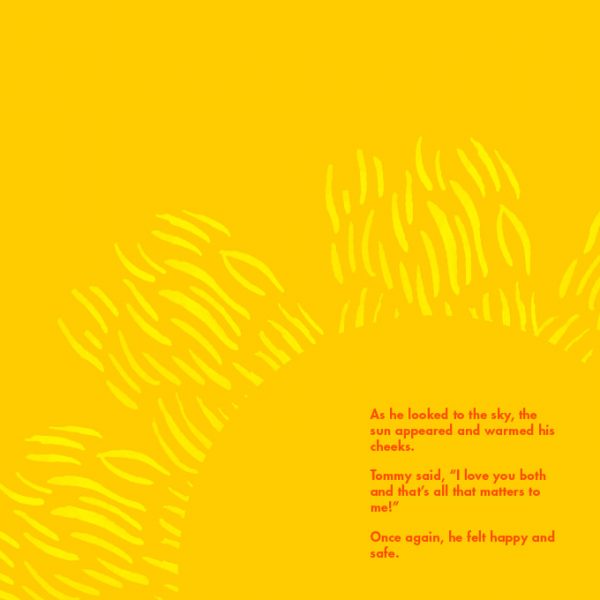Gowrie Victoria Carlton shares experience of specialised trauma learning in ECEC

Educators from Gowrie Victoria’s Carlton Learning Precinct recently used school readiness funding to access the Community Child Care Association (CCC)’s Trauma-Informed Early Childhood Training and Professional Conversations Package, and shared their story with Roundtable magazine.
An extract of their conversation, which outlined the experiences of Carlton’s Early Years Leader Nethmi and Leadership Support person Luisa, who worked with CCC consultant Caitlin, appears below.
Seeking support
Gowrie Victoria is a service that supports a community with diverse needs and circumstances, and some of the children who attend the service have challenging backgrounds.
“We support our children emotionally and work towards developing their social, physical and academic skills,” Nethmi said.
Both sessional and long day care programs are offered, and the children which attend, Luisa explained, “can be very different from one another. They have different strengths and needs.”
When more and more children with trauma and difficult stories joined the service, the educator team sought support, asking for professional development to help them to build more knowledge to be able to support children to the best of their ability.
“I’ve done my Bachelor of Early Childhood Education,” Nethmi said, “but we didn’t learn about children with trauma backgrounds or complex care needs. If you don’t have a good understanding of what goes on in a child’s mind when they are experiencing heightened emotions, it can be quite difficult to know how to support them during those moments.”
“Even if you have five children who have experienced similar trauma, their responses are going to be completely different,” she added. “You need to have a pool of strategies and learning experiences that are specific to each child’s needs.”
Defined goals
Going into the program of learning, Luisa’s primary goal was to grow her professional knowledge.
“I had three children in my room who sometimes had reactions that were threatening to themselves and the rest of the community – so I really needed to learn more about trauma,” she said.
Her secondary goal was to ensure her gained knowledge was shared with the team, so that everyone working with children had a common understanding of how to respond to and approach situations that were occurring in the space.
“My goals were similar to Luisa’s,” Nethmi said. “I wanted to understand more about acute, chronic and complex trauma, and how these different types of trauma impact children’s development, so we could find the best way to support these children. We needed a professional to guide us through it. Caitlin did exactly that and was like a therapist for us!”
Luisa said that the coaching sessions “really linked the theory with our reality. Caitlin visited the service to look at what was happening, then in our sessions we would discuss what the children might be trying to communicate through specific behaviours, and what strategies we could apply.”
Taking the learning to heart, and the heart to learning
Luisa said one of the biggest learnings from the experience was “having more knowledge of trauma-related behaviours,” which allowed educators to “put that knowledge first and feel less personally affected by the situation”.
Being able to see more possibilities for how to prepare for behaviours before the children arrive was another key takeaway. Other learnings included knowing what experiences could be set up in advance to help children to navigate the day, and how to approach challenging situations in a more assertive way.
“When children are experiencing heightened emotions, they need support instead of someone just trying to calm them down,” Luisa added.
“For me,” Nethmi said, “it was learning to identify when my children were going to respond in a freeze, flight or fight manner and better understanding their triggers and non-verbal cues. My whole team was able to get on top of environmental triggers – is it a smell, noise or something someone might have said to the child? – and support the child before things progressed to those big emotional reactions.”
Throughout the learning experience, Nethmi became more self-aware in challenging situations and learnt to change small things, like body language, to ensure she didn’t trigger the child even more.
“When it’s a really challenging day, sometimes you might feel like ‘this is how it’s going to be for the rest of the year’, and that no matter what you do, it’s not going to work,” she continued, “but after learning about why children might behave in certain ways, my team and I don’t feel hopeless anymore. Even the smallest progress, such as a child learning to share or take turns, now feels like the light at the end of the tunnel.”
Impact on the lives of children and families
Seeing the impact of the professional learning journey on the children and families of the service has been deeply satisfying, Luisa and Nethmi said.
“There’s one child in particular who we’ve seen lots of positive changes from recently, and I think that’s partly because we have a more accurate approach to supporting their needs,” Luisa said.
“We used to give one child everything they wanted to avoid an emotional reaction,” Nethmi added. “But we’ve learnt how to apply boundaries and allow the child to start self-regulating. Over the course of the year, this child has built incredible connections with their peers, educators and the community and learnt to socialise with others in a safe manner – which are lifelong skills.”
“It has been an amazing thing to watch and walk through that journey alongside them.”
This article was first published in CCC’s member magazine Roundtable, which is delivered direct to CCC members. Learn more about CCC here.
Popular

Quality
Practice
Provider
Research
Workforce
Honouring the quiet magic of early childhood
2025-07-11 09:15:00
by Fiona Alston

Workforce
Policy
Quality
Practice
Provider
Research
The silent oath: Why child protection is personal for every educator
2025-07-17 09:00:31
by Fiona Alston

Practice
Provider
Quality
Research
Embedding cultural safety and responsiveness to strengthen belonging in early childhood education
2025-07-14 13:21:23
by Contributed Content











